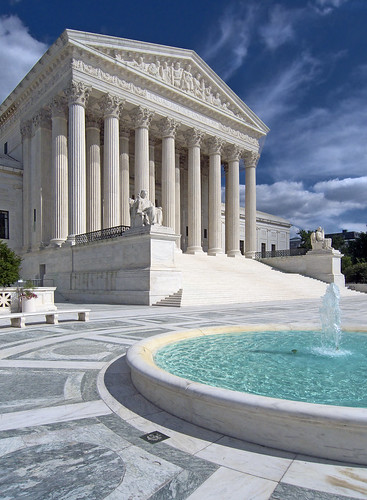 On June 24, the U.S. Supreme Court ruled 8-1 that states may publicly disclose referendum petition signatures. The case, Doe v. Reed, centers on the public's right to know who signed petitions related to Referendum 71, a 2009 attempt to overturn Washington State’s expanded domestic partner law, which gives gay and lesbian couples the same rights as married couples.
On June 24, the U.S. Supreme Court ruled 8-1 that states may publicly disclose referendum petition signatures. The case, Doe v. Reed, centers on the public's right to know who signed petitions related to Referendum 71, a 2009 attempt to overturn Washington State’s expanded domestic partner law, which gives gay and lesbian couples the same rights as married couples.